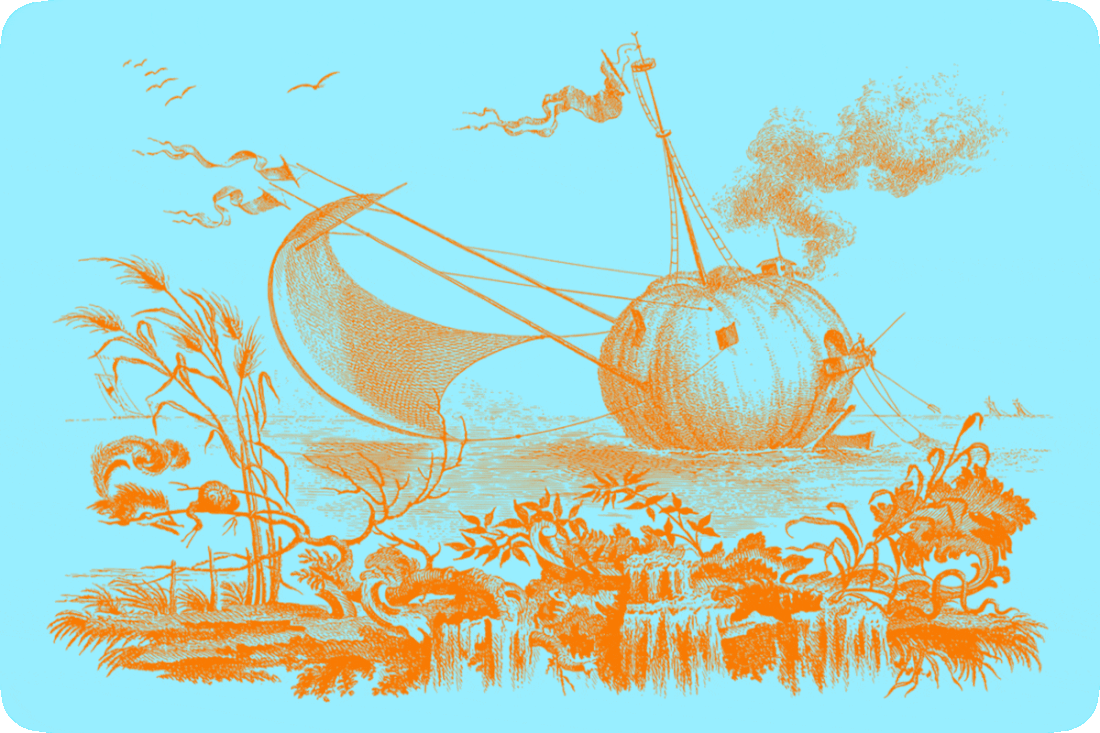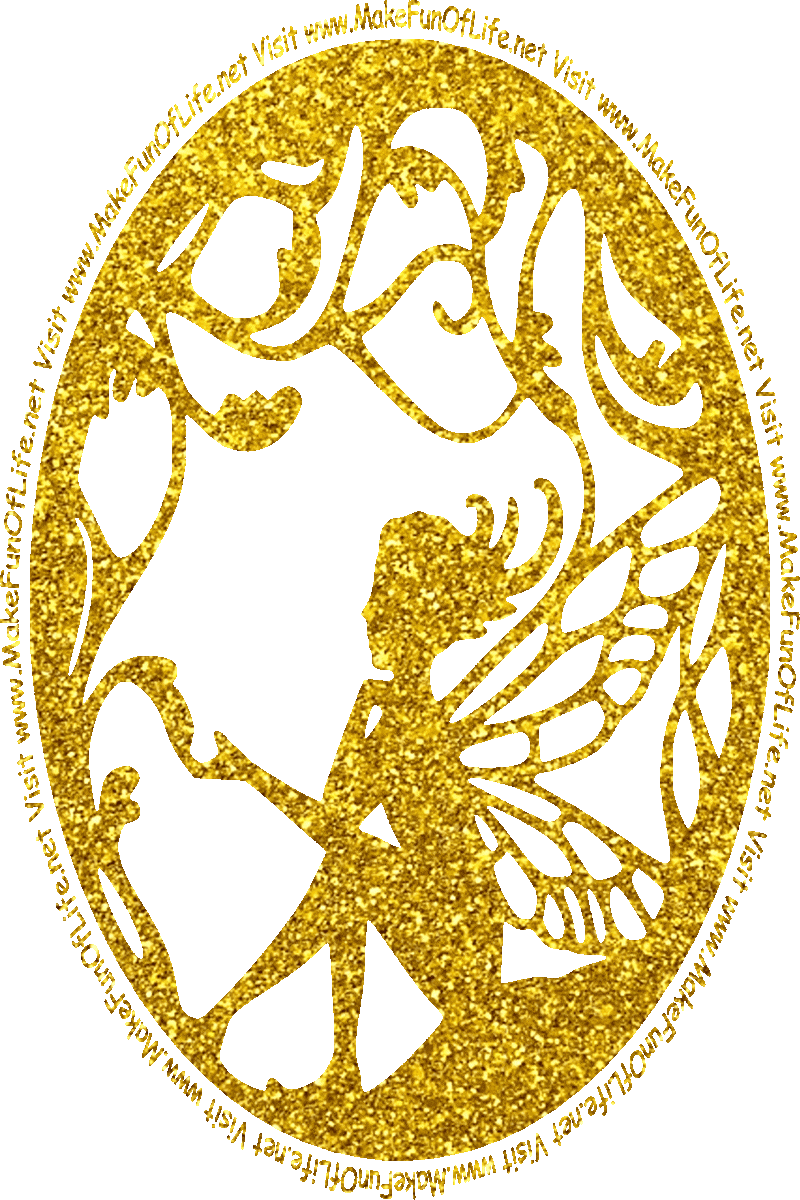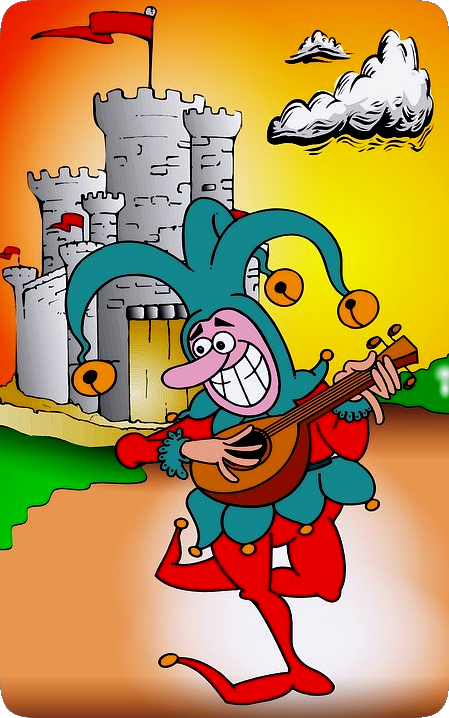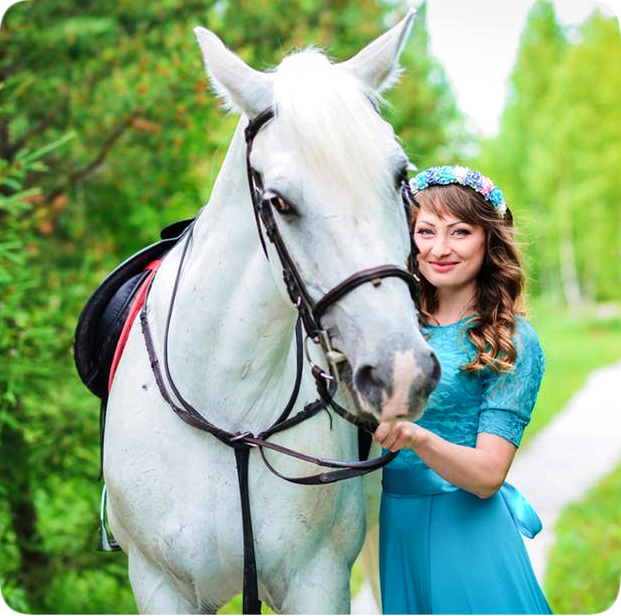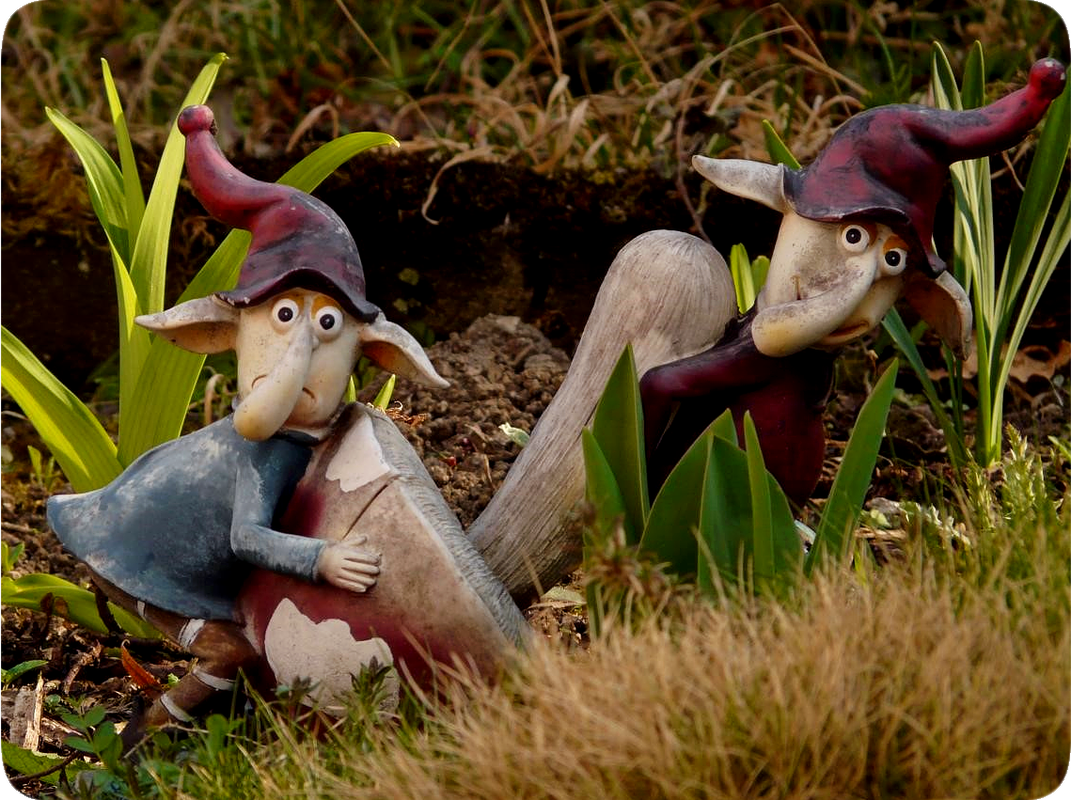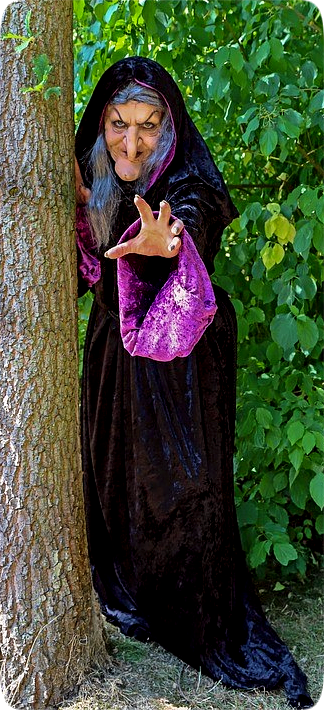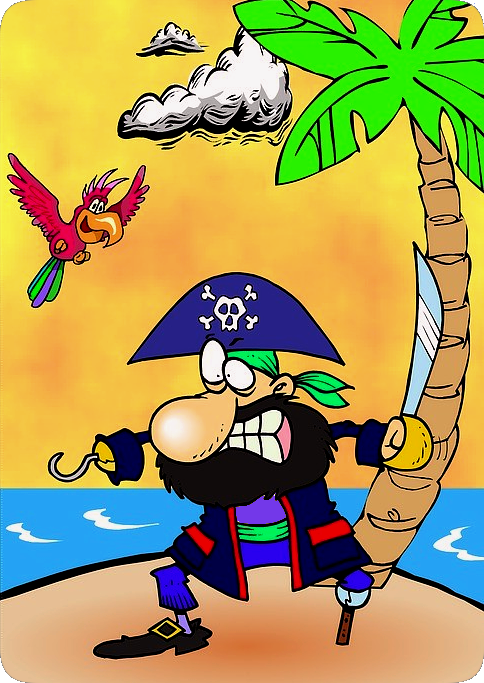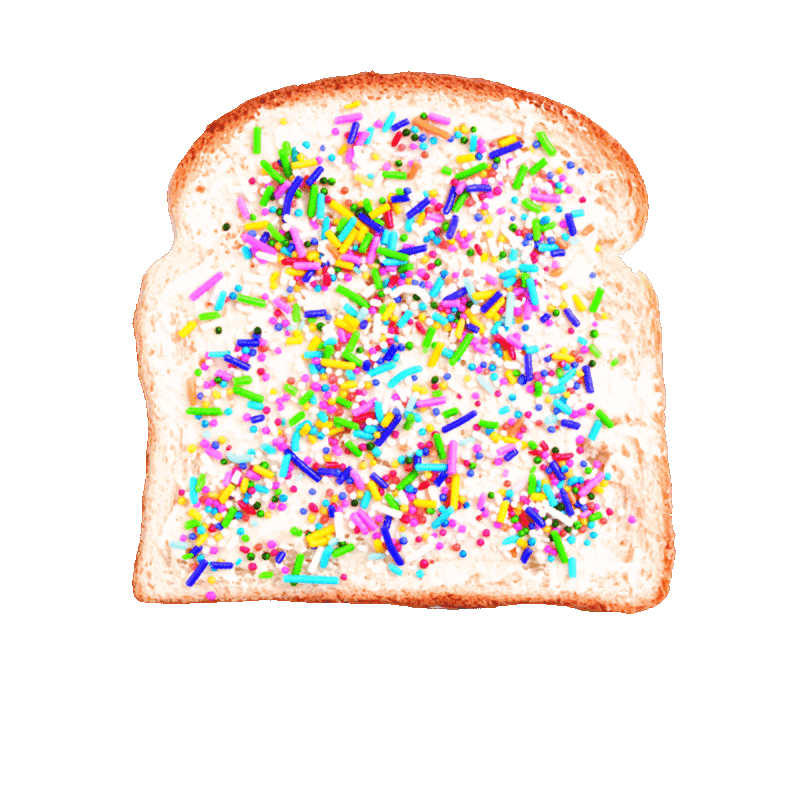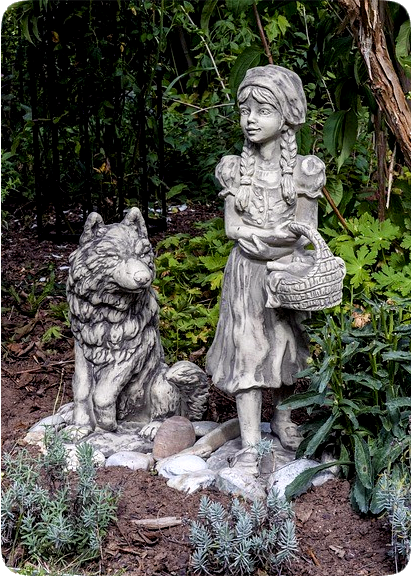The Pumpkin Pirates
Once upon a time, Lucian the Greek was filled with a desire to see strange countries, and especially to discover whether there was any opposite shore to the ocean by which he lived.
So having purchased a vessel, he strengthened it for a voyage that he knew would no doubt be long and stormy. Then he chose fifty stout young fellows having the same love of adventure as himself, and next he hired the best captain that could be got for money, and put a store of provisions and water onboard.
All this being done, he set sail. For many days he and his companions voyaged on deep waters and in strange seas. At times the wind was fair and gentle, and at others it blew so hard that the sea rose in a terrible manner.
One day there came a violent whirlwind which twisted the ship about, and, lifting it into the air, carried it upward into the sky, until it reached the Moon. There Lucian and his comrades disembarked and visited the inhabitants of Moonland. They took part in a fierce battle between the Moon-folk, the Sun-folk, and an army of Vulture-horsemen; and, after many wonderful adventures, they departed from Moonland, and sailing through the sky, visited the Morning Star. Then the wind dropping, the ship settled once more upon the sea, and they sailed on the water.
One morning the wind began to blow vehemently, and they were driven by storm for days. On the third day they fell in with the Pumpkin Pirates. These were savages who were wont to sally forth from the islands that lay in the seas thereabouts, and plunder them that sailed by.
For ships they had large pumpkins, each being not less than ninety feet in length. These pumpkins they dried and afterward dug out all the inner part of them till they were quit hollow. For masts they had reeds, and for sails, in the place of canvas, pumpkin leaves.
These savages attacked Lucian’s vessels with two ships, or rather, two pumpkins and crews, and wounded many of his company. For stones they used pumpkin seeds, which were about the bigness of a large apple.
Lucian’s company fought for some time, without gaining the advantage, when about noon they saw coming toward them, to the rear of the Pumpkin Pirates, the Nut-Shell Sailors. These two tribes were at war with each other.
As soon as the Pumpkin Pirates saw the others approaching, they left off fighting Lucian’s crew, and prepared to give battle to the Nut-Shell Sailors. When Lucian saw this, he ordered the captain to set all sails, and they departed at full speed. But looking back he could see the Nut-Shell Sailors had the best of the battle, being superior in numbers, having five crews against the two of the Pumpkin Pirates, and also because their ships were stronger. As for their ships, they were the shells of nuts which had been split in half, each measuring fifteen fathoms or thereabouts.
As soon as the Pumpkin Pirates and the Nut-Shell Sailors were out of sight, Lucian set himself to dressing the wounds of his injured companions. And from that time on both Lucian and his crew wore their armor continually, not knowing whether another strange enemy might come upon them.
The End . . . For Now . . . We leave their further adventures to your imagination!
by Alfred J. Church: “A Tale from Lucian” (adapted)
Alfred John Church was born on 29 January 1829 in Richmond, Surrey, England (now Richmond, London, England). He became a scholar of the classics, a translator of Latin works into English, a school headmaster, a professor of Latin, and a re-teller of classics such as “Homer” into versions for children. Alfred John Church passed on at 83 years of age on 27 April 1912 in Richmond, Surrey, England.
Once upon a time, Lucian the Greek was filled with a desire to see strange countries, and especially to discover whether there was any opposite shore to the ocean by which he lived.
So having purchased a vessel, he strengthened it for a voyage that he knew would no doubt be long and stormy. Then he chose fifty stout young fellows having the same love of adventure as himself, and next he hired the best captain that could be got for money, and put a store of provisions and water onboard.
All this being done, he set sail. For many days he and his companions voyaged on deep waters and in strange seas. At times the wind was fair and gentle, and at others it blew so hard that the sea rose in a terrible manner.
One day there came a violent whirlwind which twisted the ship about, and, lifting it into the air, carried it upward into the sky, until it reached the Moon. There Lucian and his comrades disembarked and visited the inhabitants of Moonland. They took part in a fierce battle between the Moon-folk, the Sun-folk, and an army of Vulture-horsemen; and, after many wonderful adventures, they departed from Moonland, and sailing through the sky, visited the Morning Star. Then the wind dropping, the ship settled once more upon the sea, and they sailed on the water.
One morning the wind began to blow vehemently, and they were driven by storm for days. On the third day they fell in with the Pumpkin Pirates. These were savages who were wont to sally forth from the islands that lay in the seas thereabouts, and plunder them that sailed by.
For ships they had large pumpkins, each being not less than ninety feet in length. These pumpkins they dried and afterward dug out all the inner part of them till they were quit hollow. For masts they had reeds, and for sails, in the place of canvas, pumpkin leaves.
These savages attacked Lucian’s vessels with two ships, or rather, two pumpkins and crews, and wounded many of his company. For stones they used pumpkin seeds, which were about the bigness of a large apple.
Lucian’s company fought for some time, without gaining the advantage, when about noon they saw coming toward them, to the rear of the Pumpkin Pirates, the Nut-Shell Sailors. These two tribes were at war with each other.
As soon as the Pumpkin Pirates saw the others approaching, they left off fighting Lucian’s crew, and prepared to give battle to the Nut-Shell Sailors. When Lucian saw this, he ordered the captain to set all sails, and they departed at full speed. But looking back he could see the Nut-Shell Sailors had the best of the battle, being superior in numbers, having five crews against the two of the Pumpkin Pirates, and also because their ships were stronger. As for their ships, they were the shells of nuts which had been split in half, each measuring fifteen fathoms or thereabouts.
As soon as the Pumpkin Pirates and the Nut-Shell Sailors were out of sight, Lucian set himself to dressing the wounds of his injured companions. And from that time on both Lucian and his crew wore their armor continually, not knowing whether another strange enemy might come upon them.
The End . . . For Now . . . We leave their further adventures to your imagination!
by Alfred J. Church: “A Tale from Lucian” (adapted)
Alfred John Church was born on 29 January 1829 in Richmond, Surrey, England (now Richmond, London, England). He became a scholar of the classics, a translator of Latin works into English, a school headmaster, a professor of Latin, and a re-teller of classics such as “Homer” into versions for children. Alfred John Church passed on at 83 years of age on 27 April 1912 in Richmond, Surrey, England.
